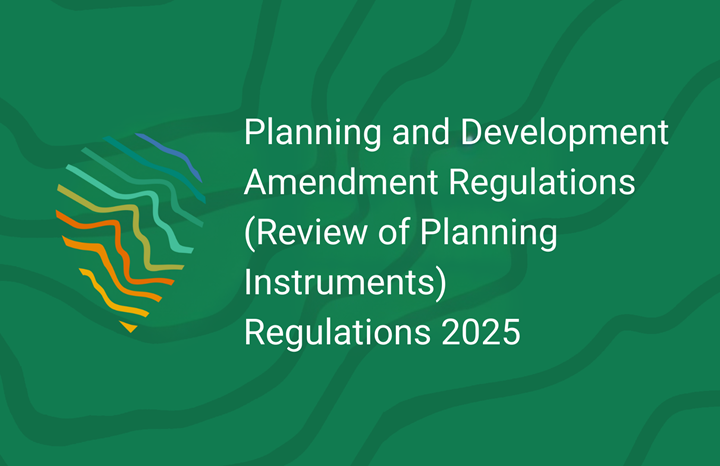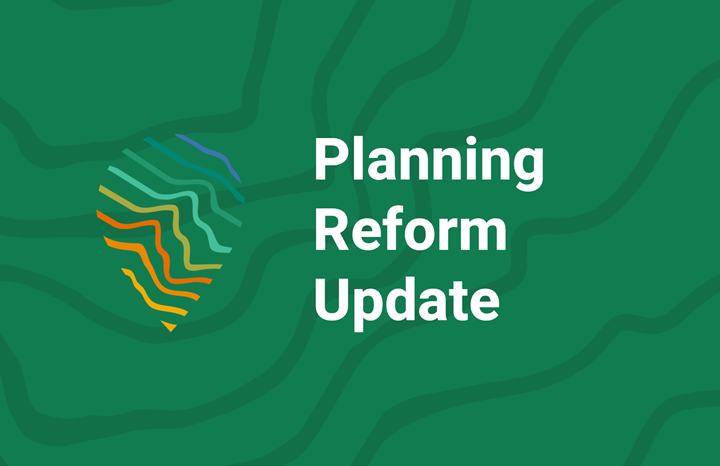
Proposed Changes to the Review of Planning Instruments
Part 9 of the Planning and Development Amendment Act 2023 (Amendment Act) will provide for the review of State and local planning instruments by inserting a new Part 9A into the Planning and Development Act 2005 (Act).
To enable Part 9 of the Amendment Act to be proclaimed, the draft Planning and Development Amendment Regulations (Review of Planning Instruments) Regulations 2025 (Draft Amendment Regulations) have been prepared for consultation.
The draft Amendment Regulations (Part 2-Part 6) propose various changes to the following sets of Regulations:
- Planning and Development Regulations 2009
- Planning and Development (Local Planning Schemes) Regulations (LPS Regulations) 2015
- Planning and Development (Region Planning Schemes) Regulations 2023
- Planning and Development (Planning Codes) Regulations 2024
- Planning and Development (State Planning Policies) Regulations 2024
Key reforms proposed through the draft Amendment Regulations, include:
- A 10-year review of State and local planning instruments through amendments to various Regulations. Please refer to the Information Sheet - Amendment Regulations 2025
- Introduce new provisions relating to the manner and form, purpose, duration, review, and extension of local planning policies Please refer to the Information Sheet - Draft Local Planning Schemes and Local Planning Policies Chapters of the WA Planning Manual.
You are invited to provide a submission on the proposed changes to the LPS Regulations as outlined in Part 2 of the Amendment Regulations and supporting draft chapters of the WA Planning Manual for local planning schemes and local planning policies.
| Proposal Consultation | Opening Date | End Date | Consultation Hub |
|---|---|---|---|
Draft Planning and Development Regulations Amendment (Review of Planning Instruments) Regulations 2025 Please note, while all comments are welcome, comment is specifically invited on Part 2 of the Amendment Regulations | Friday 4 July 2025 | Friday 3 October 2025 (5PM) | Have your say |
Draft WA Planning Manual – Local Planning Schemes | Friday 4 July 2025 | Friday 3 October 2025 (5PM) | Have your say |
Draft WA Planning Manual - Local Planning Policies
| Friday 1 August 2025 | Friday 3 October 2025 (5PM) | Have your say |
To have your say on Part 2 of the Amendment Regulations, Draft WA Planning Manual – Local Planning Schemes, Draft WA Planning Manual - Local Planning Policies, please complete the survey through the Have Your Say, WA!
Feedback must be submitted by the consultation end dates outlined above via the survey or emailed to [email protected]. While every effort will be made, late submissions may not be able to be included in the final consideration.
Information Videos
Note: these videos were current during the August/September 2025 consultation period.
Planning and Development Amendment Regulations (Review of Planning Instruments) Regulations 2025 and Supporting Chapters of the WA Planning Manual.

Recent Reforms
Parts of the Planning and Development Amendment Act 2023 and some remaining parts of the Planning and Development Amendment Act 2020 became operational on 1 March 2024. Other parts of the Planning and Development Amendment Act 2023 became operational on 1 July 2024.

Planning Reform Update
The sections below provide information about when various parts of the Act have or will come into operation:
Documents
Planning and Development (Development Assessment Panels) Amendment Regulations 2024
Planning and Development (Local Planning Schemes) Amendment Regulations 2024
Planning and Development (State Planning Policies) Regulations 2024
Planning and Development (Planning Codes) Regulations 2024
Planning and Development (Significant Development) Regulations 2024



